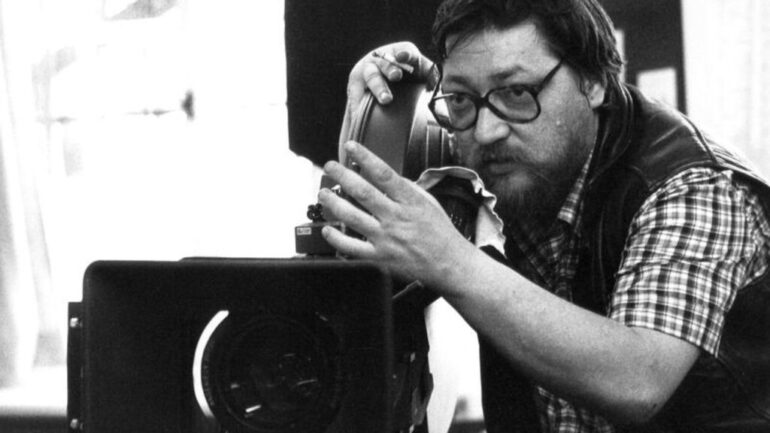Munich (dpa) – restless, restless, provocative – but also brilliant. German director, screenwriter, actor and film producer Rainer Werner Fassbinder shaped “New German Film” like no other. On May 31, Fassbinder would have been 75 years old.
He died at the age of 37 on June 10, 1982 in Munich. His artistic legacy is impressive: over 40 feature films, as well as plays, radio plays and screenplays. “Fassbinder turned at extremely high speed,” says media scientist Michaela Krützen, professor at the Munich University of Television and Film (HFF), in conversation with the German Press Agency, “everything went quickly, quickly, quickly for him.”
A way of working that distinguished him – but which is in stark contrast to today’s filmmaking. “Today, many students spend ten minutes filming longer than Fassbinder did with an entire feature film,” she says. With its working methods and aesthetics, Fassbinder would certainly not be a candidate for today’s streaming formats. And she wouldn’t see the aged film rebel in Hollywood either, because: “He would have stayed true to himself and would have made underground films.”
Rainer Werner Fassbinder is no role model for her students today, says Krützen. Most don’t even know him anymore. “These are young people who grew up with Tarantino,” says the lecturer. Only three to four out of 100 students would initially know a Fassbinder film – but this will change over the course of their studies. Krützen introduces one director each semester – and Fassbinder is the representative for the 1970s.
“You have to plant it in the heart,” she says. This is done on the one hand by showing his films (particularly suitable: “Fear eat up soul”), lectures and: by keeping a good light after class. “After the lecture, we all go to Fassbinder’s Munich pub” Die deutsche Eiche “and have a beer with him.”
It works. Also in relation to the perception of the German director. In this way, the budding filmmakers would find personal access to his way of working – and could recognize his incomparable handwriting. The fact that Fassbinder succeeded in combining great emotions with social engagement also excited her students, says the professor.
Rainer Werner Fassbinder initially grew up with his mother after his parents divorced. At 16, he dropped out of school in Augsburg and moved to Cologne with his father. At this time he wrote the first plays, poems and film ideas. After two years of private acting training, he unsuccessfully applied to the Munich Drama School and the German Film and Television Academy in Berlin. So he produced his first short films as an autodidact in 1966, a year later he joined the Action Theater, where he soon also took over the direction – and where he worked with his later star Hanna Schygulla for the first time.
The rest is one of the most extensive and successful chapters in German film and television history. He has enjoyed international success with films such as “Fear Eats the Soul”, “The Marriage of Maria Braun”, “The Longing of Veronika Voss” and “Lola”.
Rainer Werner Fassbinder still enjoys a high reputation in the global film industry. At least that’s what Fassbinder expert Manuel Zaefferer from the Munich Adult Education Center says: “His tireless will to film innovation has made a big splash in the international film world.” An influence that can still be felt today. For example, the 360-degree tracking shots that Fassbinder developed together with his cameraman Michael Ballhaus were regularly imitated in Hollywood blockbusters, and other camera shots that are typical for him were simply called “Fassbinder shots” at American film schools. That the legendary director Martin Scorsese is also a committed Fassbinder fan confirms his posthumous reputation.
It is all the more regrettable for Zaefferer that Fassbinder’s influence on today’s German filmmakers is rather small. “Fassbinder films are provocative, socially critical and emotional – I miss these characteristics in many German films today,” he says, sending the reasons behind them. On the other hand, the German film funding system must be mentioned, with the help of which Fassbinder was able to finance most of his films. » Today, Zaefferer conjectures, mainly films that promise commercial success are funded.
Fassbinder films are another caliber: films that don’t just want to be entertaining.
“They ask questions, they provoke, they shake us up and – perhaps most importantly – they touch us emotionally,” says Zaefferer. The Fassbinder Foundation looks after the creative heritage of the artist. In addition, Zaefferer is pleased to see that his films are repeatedly shown on large screens as part of retrospectives in order to develop their full pull.
If Fassbinder were still alive today, would he still make films? Zaefferer replies with a counter-question: «Fassbinder has denounced in his films what he felt was harmful to society. For example, racism, intolerance, homophobia, sadism, the hypocritical middle class, sexism, xenophobia, unchecked capitalism or emotional cruelty. What do you think, would he still find material for his films today? »
Fassbinder Foundation






